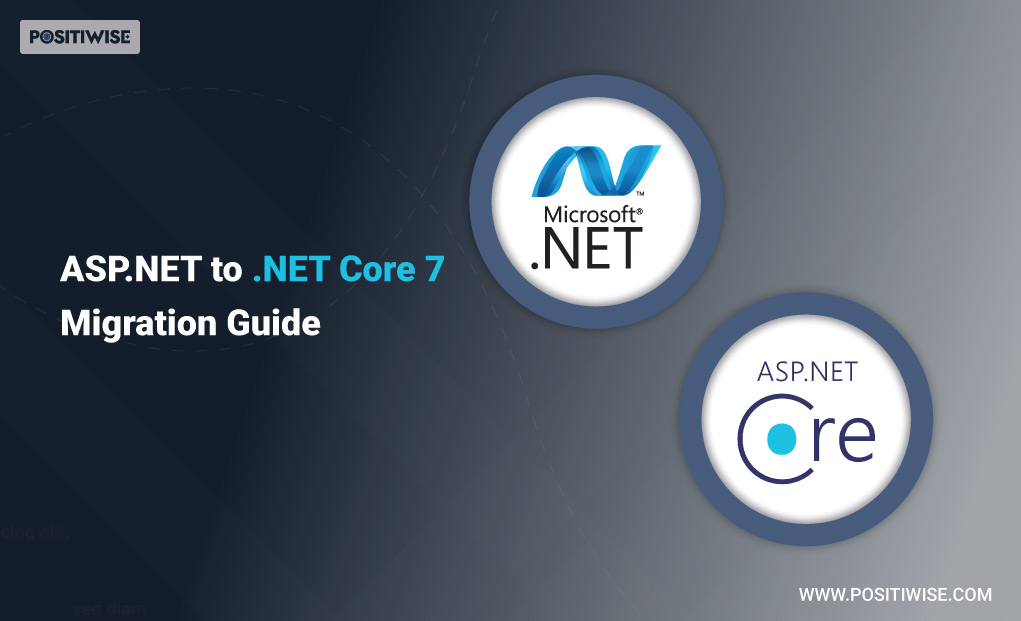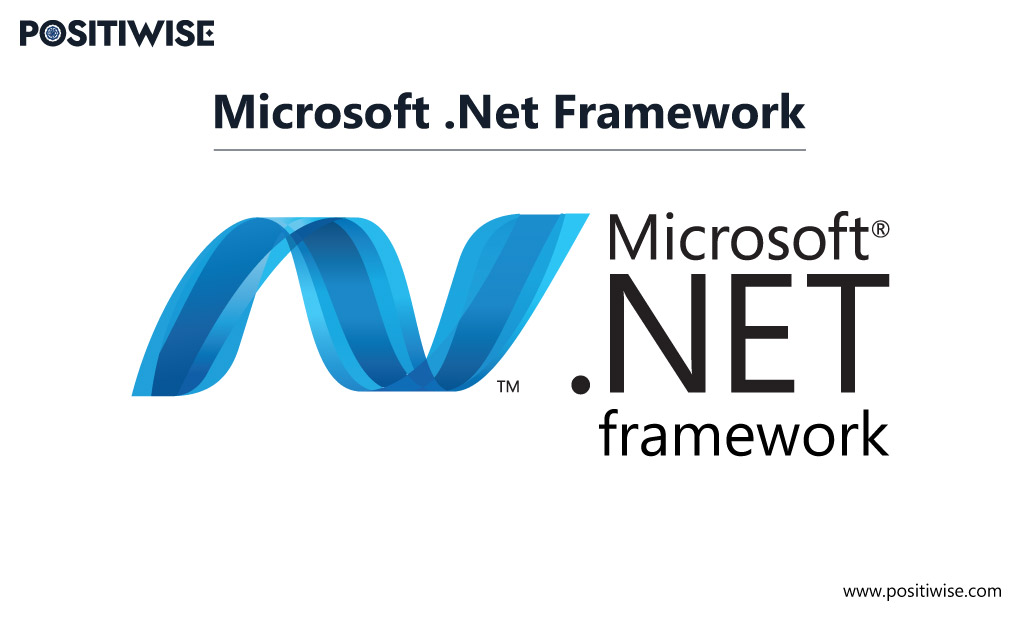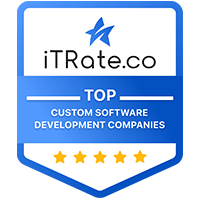Quick Overview:
Migrating ASP.NET applications to .NET Core 7 is trending due to its high performance, compatibility, and other advanced features. Anyone opting for ASP.NET to .NET Core 7 migration must know about the approaches, benefits of migrating, and associated challenges. After understanding all such factors, migration should be executed. In this blog, you will find all such information supporting simplifying the migration process.
Introduction
The introduction of .NET Core 7 was a trend-changing moment in the development industry. Several businesses moved their solution to this new-age platform, including their ASP.NET core applications. And still, numerous firms are looking to migrate ASP.NET applications to .NET Core 7.
The .NET development firm or an ASP.NET development company entirely handles the migration process. But, before that, you must know about the migration approaches, .NET Core 7 benefits, and associated complexities. And you are going to find all the details in this blog.
So, let’s get started.
What To Consider Before ASP.NET to .NET Core 7 Migration?
Before you start with ASP.NET to .NET Core 7 migration, you must consult with an ASP.NET development company to discuss and gain clarity upon:
- What are the primary differences between ASP.NET and .NET Core?
- How will migrating ASP.NET applications to .NET Core 7 be beneficial?
- Is this the right time to execute the migration?
- What will be the right .NET Core version for migration?
- How much time and cost will be required for migrating to .NET Core?
- What changes can be expected after successful migration to .NET Core 7?
Above mentioned must be your top concerns when dealing with a .NET development company for migration purposes. Understanding the benefits, drawbacks, expected outcomes, cost, and time before the migration procedure is recommended.
In the further sections, you will gain an insight into all these, but still, you must discuss it with a reputed firm in the .NET domain.
The Reasons For Migrating ASP.NET Applications to .NET Core 7
Most .NET professionals and businesses consider .NET Core 7 as the current big thing in the industry. It is considered for developing complex and large-scale applications, and you should prefer migrating to .NET Core 7 for the following reasons:
- Cross-Platform Compatibility
- Top-Notch Speed and Performance
- High Scalability
- Cloud-native Apps
- Affordable Maintenance
- Modular and Modern Architecture
- Security at its best
Cross-Platform Compatibility
.NET Core 7 will provide you the leverage to run business software on all significant operating systems, including macOS, Linux, and Windows. You will benefit from reaching out to the overall target audience and widening the customer base. In addition, it will aid the developers in using any hardware and software for developing future updates. Therefore, you will also save on infrastructure costs.
Top-Notch Speed and Performance
.NET Core 7 is a new-age development technology built per the current and upcoming trends in the digital environment. Due to this, the performance of .NET core applications is exceptional on every device. Moreover, .NET Core lists the top technologies at tech empower benchmarks in terms of performance and speed.
High Scalability
If your business is growing rapidly, then migrating to .NET Core must be your choice. The .NET Core 7 tech stack is highly scalable, which lets you smoothly integrate third-party apps, APIs, and other components required for business. In addition, it can effortlessly handle significant user traffic while retaining the quality.
Cloud-native Apps
As per the current trends, applications hosted using cloud infrastructures are prevalent due to maximum availability and cost-effectiveness. By migrating to .NET Core 7, you can effortlessly take advantage of all such cloud environments. Your application will be compatible with AWS, MS Azure, Google Cloud, IBM Cloud, and all other hosting platforms.
Affordable Maintenance
The maintenance of .NET core applications is relatively low as compared to software based on other .NET technologies. You can find affordable resources from trustworthy firms, such as Positiwise Software Pvt Ltd. In addition, .NET core apps can get readily tested and refactored within minimal time to provide the best-in-class services to end-users.
Modular and Modern Architecture
With the modern and flexible Microservices Architecture in .NET Core, deploying the software using a microservice environment becomes quite easy. It aids in individualizing the services and running them in an isolated environment. Due to this, you can update a single service without impacting other components, leading to retaining the availability of all associated stakeholders.
Security at its best
.NET Core provides all the required security features to protect the application from illegitimate access and data breaches. When you perform ASP.NET to .NET Core 7 migration, you get the benefit of using built-in:
- Authentication
- HTTPS enforcement
- Authorization
- Secure storage
- CORS (Cross-origin Resource Sharing) and more
Thus, .NET Core makes your application modular, secure, high in performance, and cross-platform-compatible.
Develop .NET Web Application with ASP.NET Technologies
Bring your web app ideas to ASP.NET development experts. Hire our skilled .NET developers to build secure, scalable web & desktop web applications.
Expected Challenges While Migrating to .NET Core
The migration of ASP.NET Core applications can create complexities if not handled by professional .NET developers and engineers. In addition, before you migrate, perform a risk assessment to avoid the following complexities/issues:
- The APIs available for .NET Core and ASP.NET are quite different. So, you must find the alternative APIs for enabling all the services and features in your new application.
- The ASP.NET codebase can create problems while running on macOS and Linux-based machines. An accurate refactoring strategy must be adopted to ensure the application can be developed on any operating system and deployed.
- The developers must check the versions of third-party components and NuGet packages installed in the ASP.NET application. If required, alternatives must be discovered before the migration. Also, a .NET Core-compatible version should be used for the new software.
- The loopholes in the ASP.NET application must be identified; otherwise, the same vulnerabilities can be present in the .NET Core 7 application. Thus, to ensure a secure .NET Core app, first, you should solidify the security of ASP.NET software.
Approaches To Follow For Successful .NET Core Migration
To efficiently and successfully migrate the ASP.NET application to .NET Core 7, you must consider the following strategies. It will help you lower the complications and complete migration within a minimal time and with the utmost quality.
- Slice-by-Slice Migration
- Preserve Codebase and Backup Data
- Layer-by-Layer Migration
#1: Slice-by-Slice Migration
In this slice-by-slice strategy, you need to create a new .NET Core 7 application and move the functionality one by one. Simultaneously, you can test the features and move forward accordingly.
In this approach, you must initiate migration by moving API endpoints and single pages. Further, migrate the HTTP rewriting and reverse proxy to enable the individual pages to provide their functionalities. It’s a time-consuming method until the migration of the first slice, as routing needs to be created between the new and existing applications.
Once the first slice gets created, developers can effortlessly migrate the complete application and even delete the ASP.NET codebase.
#2: Preserve Codebase and Backup Data
You should always create a data backup on an online and offline server until the migration completion. It helps retain the current business state if unexpected scenarios, such as a crash and code bloating, occur. Also, it will ensure that your data is available at hand, and you can move it instantly to resume operations.
Additionally, you should preserve the codebase and associated documentation to support the .NET core developers in their tasks. Moreover, it will help you analyze what changes need to be done, what is completed successfully, and what kind of maintenance strategy you need.
#3: Layer-by-Layer Migration
Industry professionals recommend layer-by-layer migration. In this approach, the ASP.NET application receives an upgrade to the latest ASP.NET version. Following this, the software gets migrated to ASP.NET Core’s latest version. The developers fully migrate the ASP.NET Core app to .NET Core 7.
The process can be time-consuming as compared to the slice-by-slice method, but it’s more effective. The only challenge to encounter during this method is incompatible or outdated dependencies. But, with the right team, such complexities can be solved easily.
Where You Should Be Looking for .NET Developers in the US?
Finding .NET developers can be hectic, as numerous companies and freelancers are available for the migration work. But here are some easy and instant tips and tricks to find a trusted, experienced, and top-notch firm, such as Positiwise Software Pvt Ltd. You only need to follow the below checklist:
- Undergo the dotnet development services provided by the .NET development firm.
- Check the completed portfolio and projects associated with the services you want.
- Consult with the firm to avail of cost and time estimation.
- Reach out to their clients and verify whether the details on the company’s website are correct.
- Conduct interviews with the developers to assess their technical and soft skills.
Once you are satisfied with all the metrics, finalize the company and start your ASP.NET to .NET Core 7 migration process.
Concluding Up
The ASP.NET to .NET Core 7 migration process starts by analyzing the need to migrate and how it will impact the business operations. The .NET Core 7 is an advanced technology that makes the software cross-platform compatible and even allows the use of cloud and microservice architecture. In addition, its security features are way more solid than ASP Core Net.
Furthermore, you must select a viable migration approach, such as layer-by-layer or slice-by-slice. Regardless of the approach, you should always back up the codebase and entire user data to fall back. Lastly, always hire .NET developers with 10+ years of experience from a dot net application migration services company for successful migration.
Expert in Software & Web App Engineering
Parag Mehta, the CEO and Founder of Positiwise Software Pvt Ltd has extensive knowledge of the development niche. He is implementing custom strategies to craft highly-appealing and robust applications for its clients and supporting employees to grow and ace the tasks. He is a consistent learner and always provides the best-in-quality solutions, accelerating productivity.






